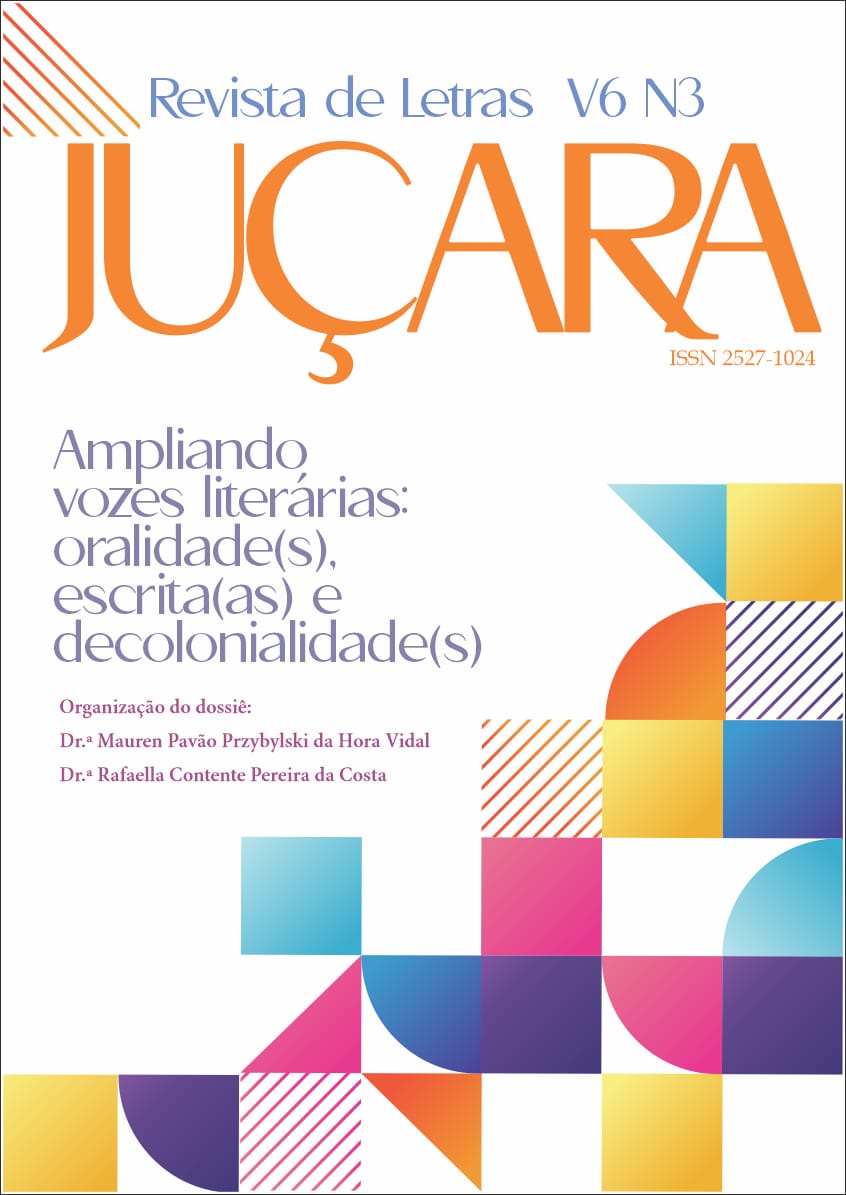EMICIDA E MCK ENTRE A RIMA E A LUTA: UMA LEITURA DO RAP EM ANGOLA E NO BRASIL
DOI:
https://doi.org/10.18817/rlj.v6i3.2985Resumen
Este texto analisa as produções estéticas Rap Crespo, do rapper angolano MCK, e Ismália, do rapper brasileiro Emicida. Visa-se discutir as aproximações, diferenças e diálogos nas produções artísticas dos rappers angolano e brasileiro a partir de um olhar crítico e decolonial, articulando experiência histórica e experiência estética. Separados pelo oceano atlântico, Angola e Brasil são constituídos por diferentes culturas e modos de vidas, porém mantêm uma proximidade histórica e linguística; ambos os países foram colonizados pelos portugueses, os quais impuseram um imaginário, uma língua e forçaram essas populações a passarem por um processo violento de escravização e dispersão forçada. Portanto, essas múltiplas realidades que atravessam o contexto pós-colonial carregam heranças escravocratas e coloniais, por isso os artistas/ativistas desses dois espaços mantêm interligações na busca pela reconstrução de imaginários ligados às populações negras a partir de narrativas e práticas artísticas que produzem um novo olhar sobre as experiências negras no mundo a contrapelo da violência que desumaniza corpos negros. Assim, amparados na produção artística angolana e brasileira, procuramos pensar na mobilização de “textos outros” na educação brasileira, baseados em leis como a 10.639/03 e a 11.645/08 que trazem a obrigatoriedade do ensino das relações étnicas e raciais na educação nacional, conduzindo, desse modo, possíveis caminhos de luta antirracista através da educação decolonial.
Descargas
Publicado
Versiones
- 2022-10-28 (2)
- 2022-10-13 (1)
Cómo citar
Número
Sección
Licencia
Derechos de autor 2022 Elivelton dos Santos Melo Melo, Silvana Carvalho da Fonseca

Esta obra está bajo una licencia internacional Creative Commons Atribución 4.0.
A submissão de originais para a Revista de Letras Juçara implica na transferência, pelos autores, dos direitos de publicação. Os direitos autorais para os artigos publicados nesta revista são do autor, com direitos da revista sobre a primeira publicação. Os autores somente poderão utilizar os mesmos resultados em outras publicações indicando claramente a Revista de Letras Juçara como o meio da publicação original.


